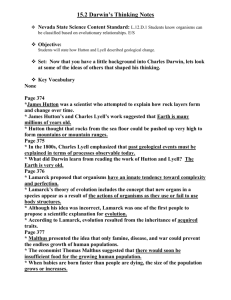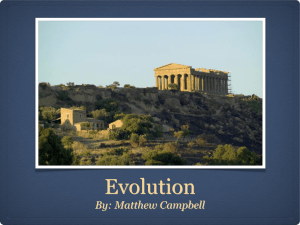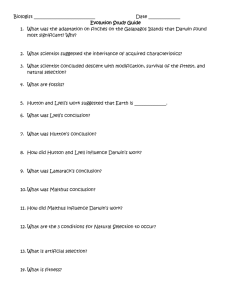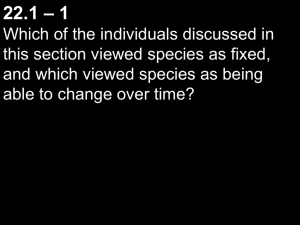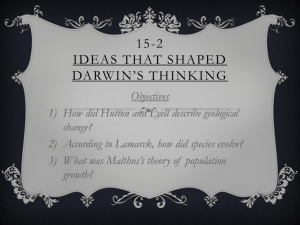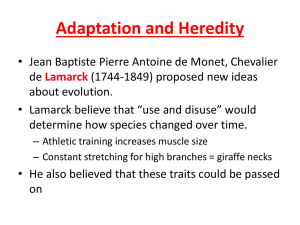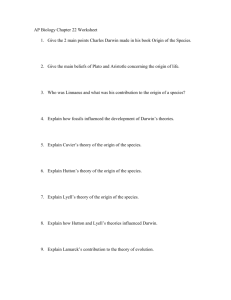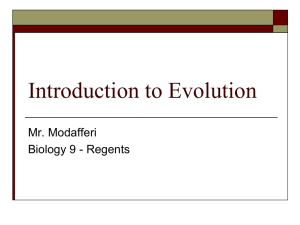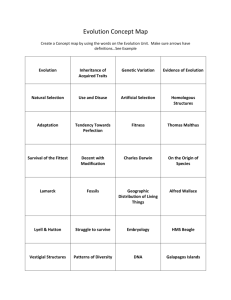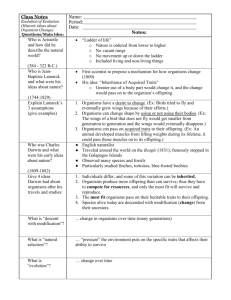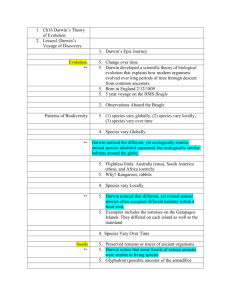Biology – Chapter 16 Assessment Answers
advertisement
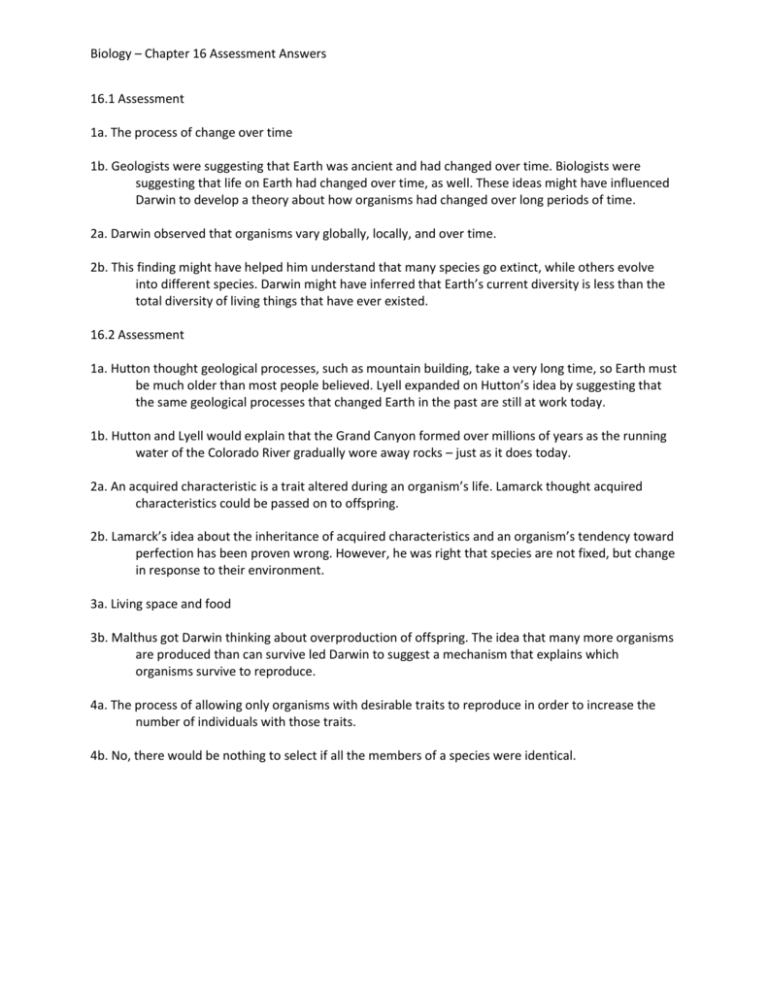
Biology – Chapter 16 Assessment Answers 16.1 Assessment 1a. The process of change over time 1b. Geologists were suggesting that Earth was ancient and had changed over time. Biologists were suggesting that life on Earth had changed over time, as well. These ideas might have influenced Darwin to develop a theory about how organisms had changed over long periods of time. 2a. Darwin observed that organisms vary globally, locally, and over time. 2b. This finding might have helped him understand that many species go extinct, while others evolve into different species. Darwin might have inferred that Earth’s current diversity is less than the total diversity of living things that have ever existed. 16.2 Assessment 1a. Hutton thought geological processes, such as mountain building, take a very long time, so Earth must be much older than most people believed. Lyell expanded on Hutton’s idea by suggesting that the same geological processes that changed Earth in the past are still at work today. 1b. Hutton and Lyell would explain that the Grand Canyon formed over millions of years as the running water of the Colorado River gradually wore away rocks – just as it does today. 2a. An acquired characteristic is a trait altered during an organism’s life. Lamarck thought acquired characteristics could be passed on to offspring. 2b. Lamarck’s idea about the inheritance of acquired characteristics and an organism’s tendency toward perfection has been proven wrong. However, he was right that species are not fixed, but change in response to their environment. 3a. Living space and food 3b. Malthus got Darwin thinking about overproduction of offspring. The idea that many more organisms are produced than can survive led Darwin to suggest a mechanism that explains which organisms survive to reproduce. 4a. The process of allowing only organisms with desirable traits to reproduce in order to increase the number of individuals with those traits. 4b. No, there would be nothing to select if all the members of a species were identical.
